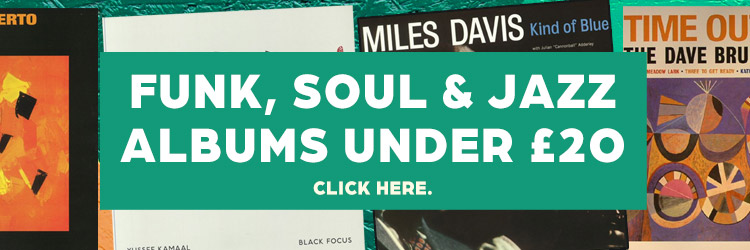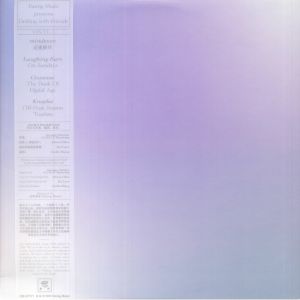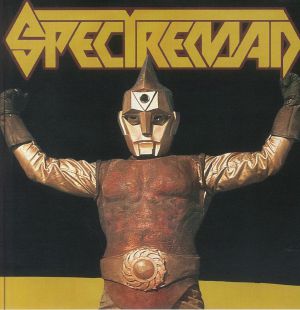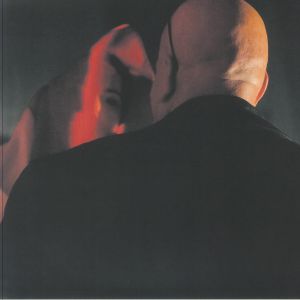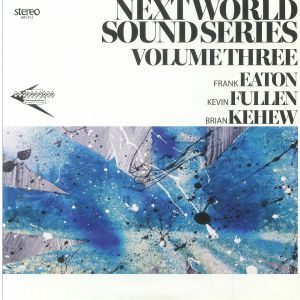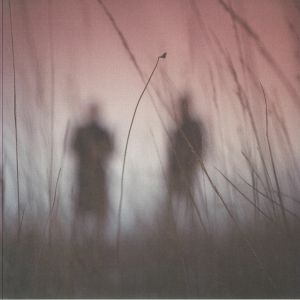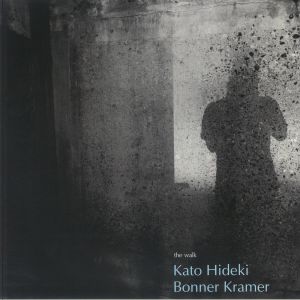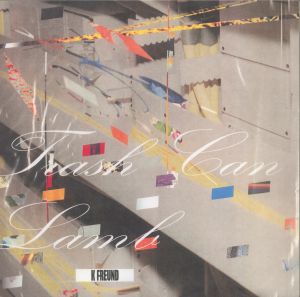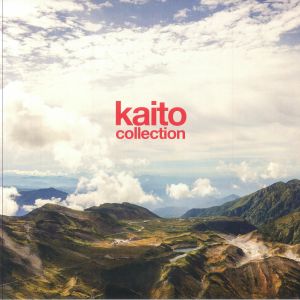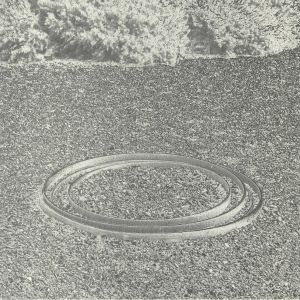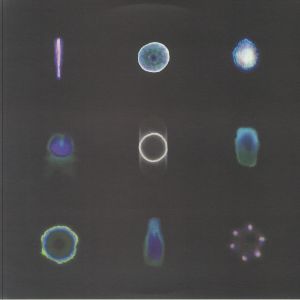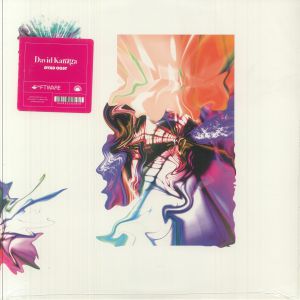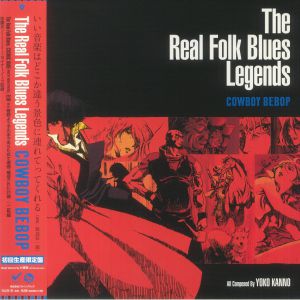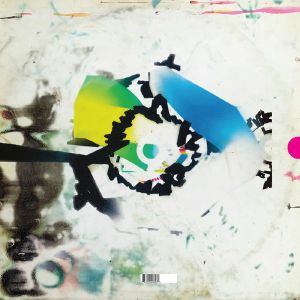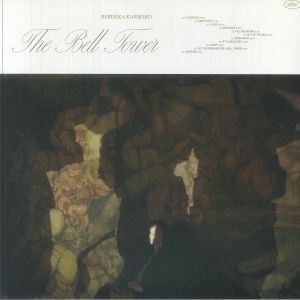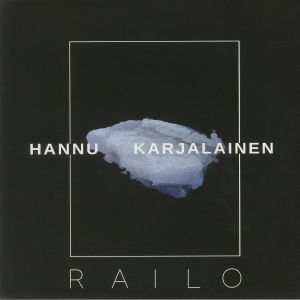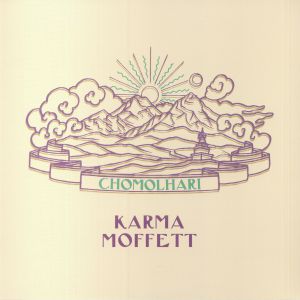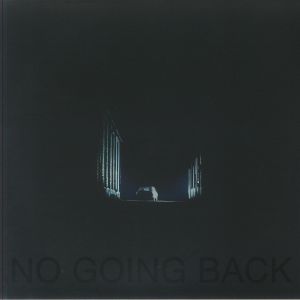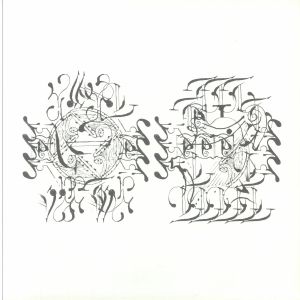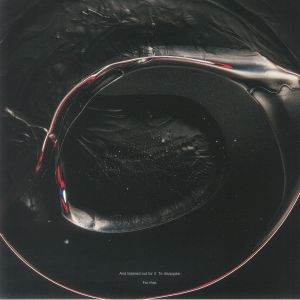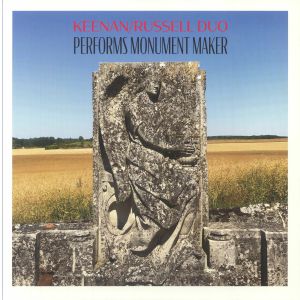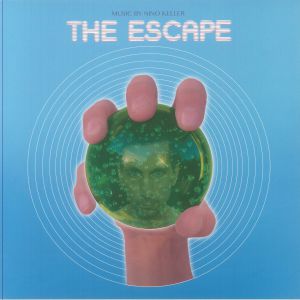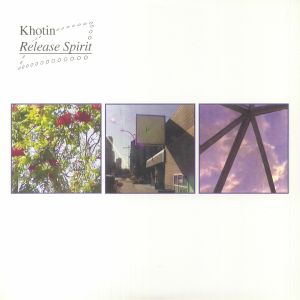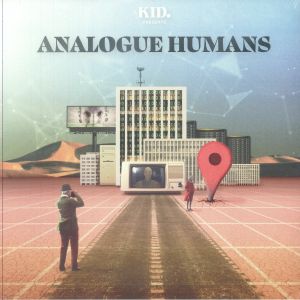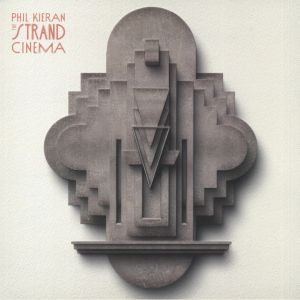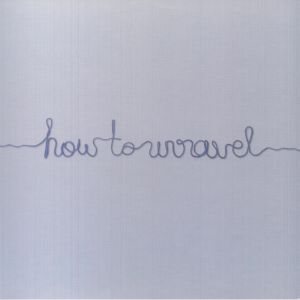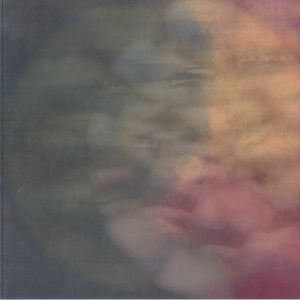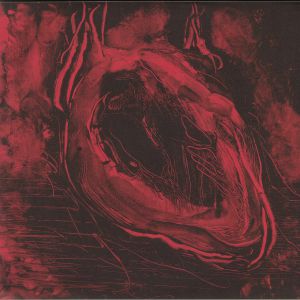Back catalogue: Leftfield
Juno's full catalogue of Leftfield
Singles
Cat: COKA 96. Rel: 21 Mar 24
Review: 'We Are!' was the very first opening theme for the TV anime version of One Piece, which first aired in 1999. The first analogue version of the 8cm single CD was released in November of that year. Sung by the franchise's in-house singer Hiroshi Kitadani, and bringing along with her a bursting, emphatic, nearing-on-frenzied composition, the theme instantly captures the vibe of One Piece; that of following Monkey D. Luffy and crew on serial whimsical piracies and carefree adventures, set against a more sinister backdrop of tyrannical secret police forces controlled by a World Government, in constant conflict with a Revolutionary Army.
… Read more in stock $21.75
EM 037V1 (silver vinyl 12" + MP3 download code with obi-strip)
Cat: EM 037V1. Rel: 10 Aug 22
Review: Outlier experimental label Eating Music brings back more for us to chew on here in the form of a varied four tracker from various artists. It is Mindexxx that opens with 'Track 1' which layers up snaking synths and deeply buried dark bass that grows in intensity and washes over you like a Tsunami. Laughing Ears then cuts back to a tender mood with soft piano chords and slowly unfolding rhythms that are warm and lithe. Gooooose's 'The Dusk Of Digital Age' is a churchy affair with textured drones shot through with beams of synth light and Knopha's 'Off-Peak Season Tourists' layers up choral vocals and jumbled drum sounds into something hypnotic and escapist.
… Read moreGespielt von: Juno Recommends Experimental
in stock $29.10
Spectreman (Soundtrack) (limited gold vinyl 7")
Cat: TTSEP 02G. Rel: 29 Aug 24
in stock $30.50
Alben
in stock $30.50
Next World Sound Series Vol 3 (white vinyl LP + insert)
Cat: HYPSPLP 12. Rel: 13 Sep 24
in stock $26.84
Signal (LP limited to 300 copies)
Cat: IRRLICHT 022. Rel: 12 Apr 24
in stock $24.59
in stock $27.69
Trash Can Lamb (LP + MP3 download code limited to 150 copies)
Cat: SODA 015LP. Rel: 16 May 24
Review: Trash Can Lamb is the layers solo work from Akron-based multi-instrumentalist Keith Freund. With two decades of musical exploration, Freund, known for his work with Trouble Books and Lemon Quartet, crafts an eclectic blend of analogue synthesis, piano, bass, saxophone, and field recordings. This album delves into experimental realms, melding 8-bit delays with acoustic elements that give rise to great ethereal melodies. Handmade electronics coalesce with wistful piano and saxophone melodies to make for a juxtaposition of chaos and tranquillity. Freund captures the essence of a backyard at dusk, where the cacophony of nature meets the serenity of twilight.
… Read moreGespielt von: Juno Recommends Broken Beat Nu Jazz
in stock $31.64
Pointed Frequencies (LP + insert)
Cat: DIALLP 48. Rel: 14 Nov 24
Review: Ben Kaczor and Niculin Barandun's debut album, Pointed Frequencies come on the tasteful German outlet Dial Records and explores the healing potential of sound through six immersive tracks. Their collaboration began in 2022 for an audiovisual show at Digital Art Festival Zurich and has developed masterfully since and as Kaczor studied sound therapy, Barandun became intrigued by its possibilities, and it is that which has inspired the album's direction. It incorporates therapeutic elements like binaural beats and solfeggio frequencies into a seamless blend of ambient and experimental music. Through free improvisation, the pair have cooked up some brilliantly contemplative pieces here.
… Read moreGespielt von: Joachim Spieth
in stock $20.91
Cat: KBKA 006. Rel: 03 Oct 24
in stock $40.11
Mega Man Battle Network (Soundtrack) (limited translucent blue vinyl LP)
Cat: STS 194. Rel: 30 Jun 23
in stock $47.18
Review: Following their latest maxi-EP for Infine, 'Silent Sky', Kaito (a beatsmith's production alias of a towering name, none other than Hiroshi Watanabe) returns for Collection, his newest album for Infine. Celebrated for his contributions to the "enviro-ambient" scene in his home Japan, Collection marks the latest reminiscence under Watanabe's Kaito pseudonym, which was started in 2001 after visit to Europe and subsequent release on the Kompakt label. With "Kaito" meaning both "universe" and "secret" depending on its usage, Collection is comprised of ambient, quiescent and melodic tunes which serve as individual therapies for the ear, despite their dual esoteric and cosmic quality.
… Read more in stock $31.08
in stock $32.76
Review: French label Good Morning Tapes welcomes Paris-born electronic innovator and 70s GRM alumni Ariel Kalma New York-based trio Asa Tone for some serious deep ambient soundscapes. The wellness movement has never been more polar than it is now but if you ask us, nothing could be better for your mental health and sense of self than sitting a dark room with this one nice and loud so you can soak up its high fidelity designs, the microscopic pads, the whimsical melodies and slowly shapeshifting sounds in all their glory. A tremendous work.
… Read moreGespielt von: Kaoru Inoue
in stock $33.62
Band Of Brothers (Soundtrack) (limited numbered 180 gram audiophile white vinyl 2xLP + booklet)
Cat: MOVATM 079W. Rel: 15 Apr 25
Review: "We few, we happy few, we band of brothers..." So said Henry V before the battle of Agincourt in one of Shakespeare's many lauded histories. The quote went on to Christen Stephen Ambrose's 1993 novel and a subsequent American war drama miniseries of the same name, chronicling the journey of the "Easy Company," a group of American paratroopers during World War II. Training, combat tussles, and fraternal bonds are given a brutal portrayal in the film, and this mood of brutality and endurance was not unnoticeably underscored by Michael Kamen's soundtrack, now reissued on gatefold 2xLP. Kamen, known for his scores for Die Hard, X-Men and Memento, brought out a mood of orchestral fortuity, successfully mirroring the film's intent to portray themes of glory, tragedy and camaraderie, all of which ooze from its many orchestral swells and windfalls.
… Read more in stock $44.36
in stock $22.59
Review: No prizes for guessing the kind of sonic avenues we're invited to explore here. Less obvious is the fact Kandodo is actually Simon Price, a name many psych lovers will recognise from British heavyweights The Heads - a group that have spent the last few decades bending minds to their will, or at least sound, and opening up third ears with far reaching cosmic tones. Here you can expect similar wormholes to open, but dark matter reigns supreme. Introverted to the point of collapsing in on itself, Theendisinpsyche feels sludgy, deep, heavy and all the things that make us look down and then inside ourselves. With the B-side taken up by 22-minute long epic, 'Swim Into The Sun', you should hopefully know just how intense and inescapable things get - which should only ever be taken as a strong recommendation from us.
… Read more in stock $25.98
Songs For The Cosmic Sofa: Cowboy Bebop (Japanese Edition) (limited LP + insert with obi-strip)
Cat: VTJL 30. Rel: 21 Dec 23
in stock $43.50
The Real Folk Blues Legends: Cowboy Bebop (Japanese Edition) (limited 2xLP + insert with obi-strip)
Cat: VTJL 28. Rel: 21 Dec 23
in stock $39.54
Angel's Egg: Living In Water (Soundtrack) (CD with obi-strip)
Cat: TKCA 10556. Rel: 19 May 25
in stock $22.32
Jojo's Bizarre Adventure: Golden Wind Vol 1: Overture (Soundtrack) (limited gatefold yellow & orange vinyl 2xLP + insert)
Cat: 196588 135217. Rel: 07 Jul 23
Review: Spanning no less than 131 volumes in print, Jojo's Bizarre Adventure has understandably found cult status among fans of Manga worldwide. Running from 1987 to present day, the most recent instalments began serialisation in 2023. Presumably looking to make the most of the first new chapters since 2012, Sony has opted to re-release the score to part five, Golden Wind, which landed in 2001 and was adapted into anime form. Setting the scene in Naples, Italy, the plot involves gangsters, drug dealers who specifically target kids, and a plot to kill the protagonist's daughter. Steeped in Japanese animated movie score traditions, the accompanying music by celebrated composer Kanno Yugo is at times tense, in other moments playful, often fantastic, regularly bizarre, and resolutely eccentric.
… Read more in stock $41.54
A Path With A Name (LP + MP3 download code)
Cat: SODA 013LP. Rel: 15 Sep 23
in stock $30.50
in stock $23.72
in stock $27.54
in stock $30.23
in stock $27.69
No Going Back (LP in spot-varnished sleeve)
Cat: BARN 106. Rel: 17 Dec 24
Review: Since delivering his debut album on PNN a decade ago, Matt Kent AKA Matt Karmil has proved adept at adapting the club-focused sound of his EPs to the long-playing format - as his inspired and wonderfully atmospheric sets for Idle Hands and Smalltown Supersound prove. He continues this notable run of form on this Studio Barnhus released set, crowding ultra-deep, dusty grooves in opaque chords, cut-up sample snippets, lo-fi crackle, hazy ambient textures and nods towards a myriad of ear-pleasing electronic styles and sounds. Highlights are plentiful, with our picks being the dubby, mind-altering late-night hypnotism of 'Still Something There' and the becalmed, meditative ambient deepness of superb closing cut '15 Mins' (which, confusingly, is just 13 minutes long).
… Read more in stock $26.55
Review: Optimo Music continue to dazzle with their increasing experimentation, this time welcoming Finnish producer and K-X-P frontman Kaukolampi to the fore. Exploring the concept of sound as a physical and spatial phenomenon, the LP explores Kaukolampi's idea of "the sphere": his metaphysical and/or musical analogy for being subject to an undetectable outside force, as if being manipulated by an unseen cult. Hypnotic, eerie grooves play out in a muted, time-crystalline fashion, all tracks evoking the feeling of being locked in spherical amber, unwitting.
… Read moreGespielt von: Alexis Le-Tan, Juno Recommends Ambient/Drone
in stock $22.32
in stock $26.55
in stock $26.55
Gespielt von: Joachim Spieth
in stock $27.11
in stock $24.86
The Escape (pink vinyl LP limited to 300 copies)
Cat: LPCOOPR 042C. Rel: 25 Mar 25
in stock $27.98
Sideways (Soundtrack) (reissue) (limited "claret" burgundy bio vinyl LP)
Cat: SILLP 1174R. Rel: 08 Aug 24
in stock $29.67
Review: Eli Keszler hears the New York percussionist and composer of the same name lord his soundworld over as yet unhaunted terrains. Rooted in dust residues of American abstraction, jazz noir, ancient melodic memory and crumbling industrial forms, the record unfolds as a footworking meditation on beauty and erosion, gawping at the anguishes and awes of the present moment. Keszler's metamorphic practice spans releases on PAN, Empty Editions, and ESP Disk, as well as collaborations with Oneohtrix Point Never, Rashad Becker and Laurel Halo. Icons emerges as a natural continuation of his previous, equally as unsettling LP Stadium from 2018, and this one emerges as its natural progression. The release coincides with a conversation between Keszler and filmmaker Adam Curtis, framing the album within a wider dialogue on sound, history and collapse.
… Read moreGespielt von: Juno Recommends Leftfield
in stock $29.10
Review: Dubio makes no secret of its intention, from the word go. The opening, titular track give us the lay of the land. A record inspired by the soundtrack to a puzzle game of the same name, there's a cyclical, perpetual kind of motion to everything here. Obviously, we know where the start of each piece is, and the conclusion. But the vibe isn't forward motion, nor backwards. Instead, there's a gradual meandering tempo, a loose, open-ended kind of aesthetic that invokes the old cliche - the journey, not the destination. And with that, you can't help but sense a little mystery here, too. Kettel isn't always known for this type of free spirited exploration, and yet here we are, and how we got here is part of what we're trying to figure out. Musically, that means warm pads and string refrains, twinkling chimes, plodding, almost unsteady percussion and a sense of wonder and perpetuity throughout.
… Read moreGespielt von: Alexis Le-Tan, Juno Recommends Ambient/Drone
in stock $33.33
When Can (limited orange marbled vinyl double 12" + 10")
Cat: LPS PS16. Rel: 05 Jun 24
Review: Reimer Eising, aka Kettel, and Lennard van der Last, aka Secede, had already been lifelong friends by the time they began working on When Can. The Dutch producers wanted to create a seamless listening experience that would unfold and develop as a film does, using cinematic-leaning sounds to achieve their big idea. The whole thing feels like a narrative, a beginning-middle-end, which is doubly impressive when you learn there was no grand plan to begin with. Just two pals exploring what might come next. Originally released in 2012 - hark!, those heady, innocent days - what's perhaps even more astounding than the picturesque, immersive soundscapes here, is the fact this is the first time When Can has made it onto vinyl. Having said that, 12 years ago was another time and place, not least in terms of music sales, so let's not dwell on what everyone was thinking by not bringing this out on wax sooner. Instead, savour every moment of the rich, dreamy electronica.
… Read moreGespielt von: Juno Recommends Downtempo
in stock $41.25
Only Music In The Building (Soundtrack) (green & red split coloured vinyl LP)
Cat: 100014 1553. Rel: 22 Feb 24
in stock $32.21
Release Spirit (limited purple sky vinyl LP (indie exclusive))
Cat: GI 411LPC2. Rel: 16 Feb 23
Review: Canada may not shout as loud as the US, UK or Germany when it comes to electronic music, with the exception of Richie Hawtin perhaps, albeit frequently assumed he's American, and is actually part-British. Nevertheless, the larger North American state has a truly remarkable legacy in house, techno, ambient, and synth-y odds and sods.
It's proof the apple never falls far from the tree, given proximity to some of the bonafide birthplaces of those sounds - Chicago and Detroit. Edmonton's Khotin is indicative of the difficult to define tones that emanate from the Maple Leaf and its people. So much texture, pouring with emotion, and fundamentally born of new ideas, or at least different ways of thinking. Release Spirit, his third album on Michigan's Ghostly International, is thoughtful, intelligent, downtempo electronic stuff, crafted with love and attention to detail.
… Read moreIt's proof the apple never falls far from the tree, given proximity to some of the bonafide birthplaces of those sounds - Chicago and Detroit. Edmonton's Khotin is indicative of the difficult to define tones that emanate from the Maple Leaf and its people. So much texture, pouring with emotion, and fundamentally born of new ideas, or at least different ways of thinking. Release Spirit, his third album on Michigan's Ghostly International, is thoughtful, intelligent, downtempo electronic stuff, crafted with love and attention to detail.
Gespielt von: Juno Recommends Leftfield, Juno Recommends Ambient/Drone
in stock $25.43
in stock $28.53
Gespielt von: Rave Energy
in stock $26.84
Robot Danguard Ace (limited LP + insert)
Cat: TTLP 06BLACK. Rel: 15 Sep 20
in stock $38.70
Kamen Rider TV BGM Best Collection (Soundtrack) (translucent green vinyl LP + autographed hand-numbered insert with obi-strip limited to 100 copies)
Cat: TTLP 16G. Rel: 28 Mar 24
in stock $41.81
Bram Stoker's Dracula (Soundtrack) (180 gram audiophile vinyl LP in spot-varnished sleeve)
Cat: MOVATM 284. Rel: 12 Feb 21
in stock $33.33
Bram Stoker's Dracula (Soundtrack) (reissue) (limited numbered 180 gram audiophile transluscent yellow vinyl LP)
Cat: MOVATM 284Y. Rel: 22 Oct 24
Review: In 1992, Francis Ford Coppola tapped Polish composer Wojciech Kilar to create the score for his adaptation of Dracula. Kilar, relatively unknown at the time, crafted a haunting and atmospheric composition that adds depth to the story of the infamous vampire. The score relies on low tones to evoke dread, as heard in the main title, 'Dracula: In the Beginning', where deep cello and bass strings set a sinister tone for Count Dracula's eerie castle. 'Vampire Hunters' builds a tense violin theme, punctuated by woodwinds and percussion, reflecting the determination of Van Helsing in his pursuit of the vampire. 'Ring of Fire' delivers a ferocious climax, blending demonic voices and chorale elements in a chilling fashion. The highlight of the score is its haunting minimalism. Kilar avoids conventional melodies, focusing instead on repetitive, unsettling arrangements that grow in intensity. Tracks like 'The Storm' showcase his mastery, shifting from delicate harp plucking to powerful brass and gothic organ swells. Kilar's score stands out for its unique use of instrumentation and atmosphere, making it a perfect complement to the gothic horror of the film. Now available on 180-gram yellow vinyl, this chilling composition is essential for fans of the legendary story.
… Read more in stock $33.33
in stock $29.37
The Blue In You (Soundtrack) (remastered) (limited 180 gram blue vinyl LP + booklet)
Cat: SOUX 3941. Rel: 12 Apr 24
in stock $49.44
Sunset Into The Neon Lights (Soundtrack) (remastered) (limited 180 gram peach vinyl LP)
Cat: SOUX 3951. Rel: 12 Apr 24
in stock $48.87
Gespielt von: Juno Recommends Ambient/Drone
in stock $27.69
Ensemble 1: Al Jadi (LP + MP3 download code)
Cat: RPTD 036LP. Rel: 03 Sep 21
in stock $26.55

 USD
USD





